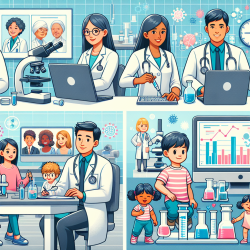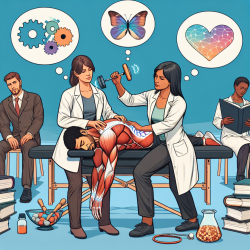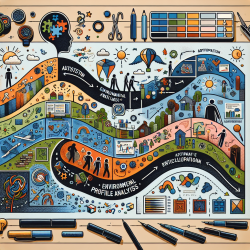Introduction to Open Science in Speech Language Pathology
Open Science (OS) is revolutionizing the way research is conducted and shared across various scientific fields. In the realm of speech language pathology, embracing OS can significantly enhance research quality, reproducibility, and accessibility. The recent study titled "Close to open—Factors that hinder and promote open science in ecology research and education" offers valuable insights that can be applied to improve practices in speech language pathology.
Understanding Open Science
Open Science encompasses a broad set of principles aimed at making research methods, data, and results freely available to everyone. It promotes transparency, collaboration, and innovation by encouraging researchers to share their findings openly. This approach not only enhances the credibility of scientific research but also accelerates the application of research findings in real-world settings.
Benefits of Open Science for Practitioners
For practitioners in speech language pathology, adopting OS practices can lead to numerous benefits:
- Enhanced Collaboration: By sharing data and methodologies, practitioners can collaborate more effectively, leading to innovative solutions and improved outcomes for children.
- Increased Accessibility: Open access to research findings ensures that educators and clinicians have the latest information at their fingertips, enabling evidence-based practice.
- Improved Reproducibility: Transparent sharing of research methods and data allows for replication and validation of findings, strengthening the evidence base for therapeutic interventions.
Challenges and Solutions
Despite the clear advantages, the transition to OS is not without challenges. The study highlights several barriers, such as lack of guidelines, insufficient knowledge, and limited resources. To overcome these hurdles, practitioners can:
- Seek Training and Resources: Engaging in workshops and online courses can build the necessary skills for OS practices.
- Foster a Supportive Community: Building networks with fellow practitioners can provide social support and share best practices.
- Advocate for Institutional Support: Encouraging institutions to provide resources and incentives for OS can facilitate wider adoption.
Implementing Open Science in Education
Incorporating OS principles in educational settings can yield substantial benefits. Educators can integrate OS practices into curricula, providing students with hands-on experience in data sharing and collaborative research. This approach not only prepares students for future careers but also instills a culture of openness and transparency from the outset.
Conclusion
Embracing Open Science in speech language pathology holds the potential to transform research and practice. By overcoming challenges and leveraging the benefits of OS, practitioners can enhance outcomes for children and contribute to the advancement of the field. For those interested in exploring the original research paper, please follow this link: Close to open—Factors that hinder and promote open science in ecology research and education.










